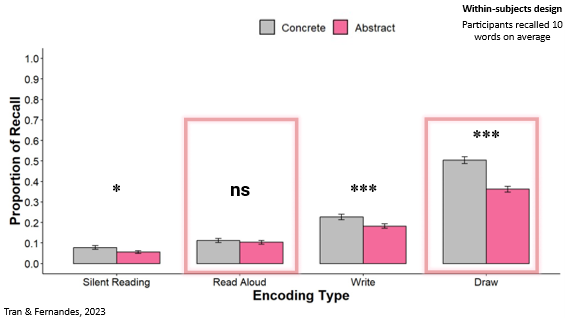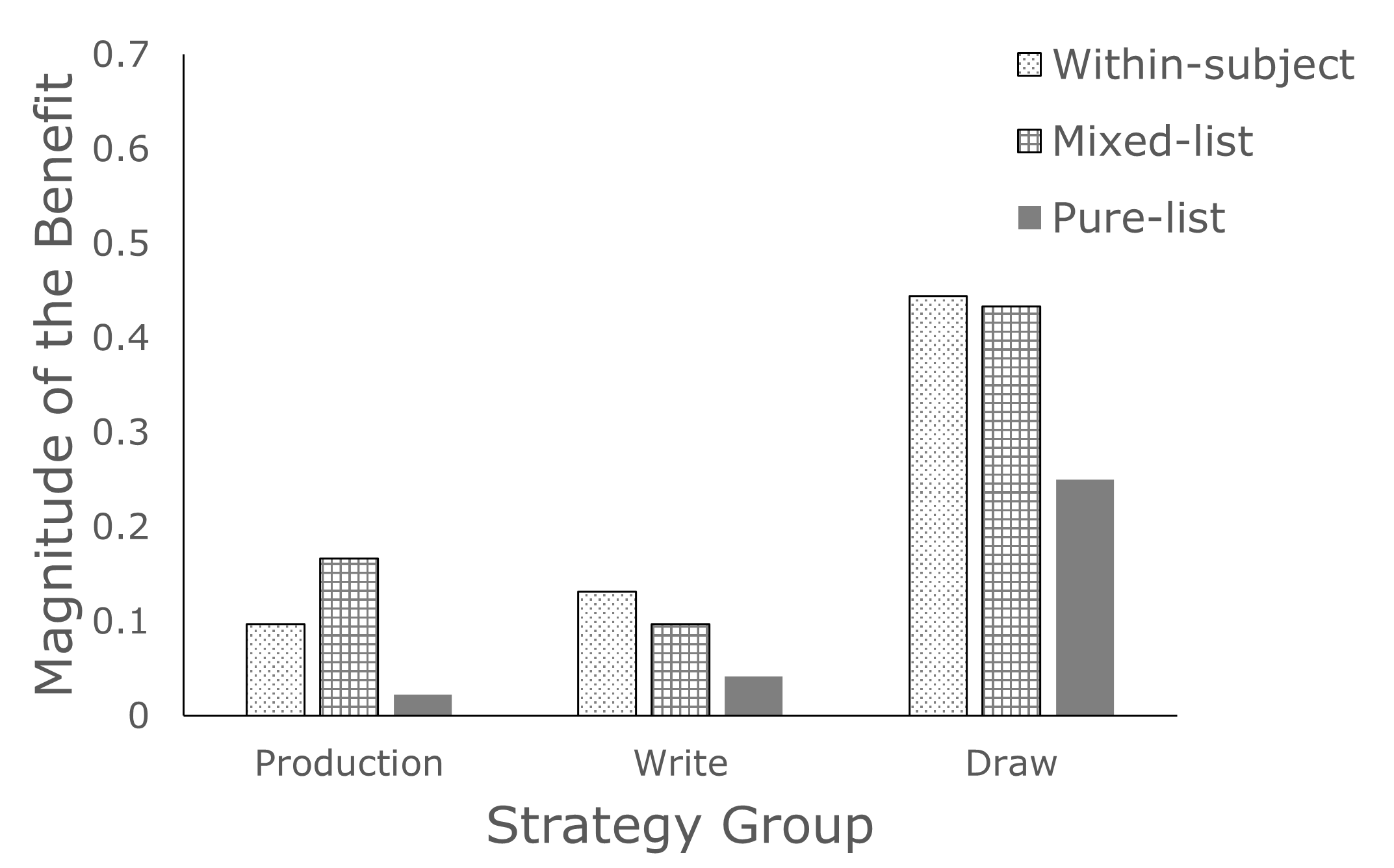Research Interests
- Tran, S.H.N., & Fernandes, M.A.(2024). Effectiveness of encoding techniques on memory for concrete and abstract words. Memory. doi:10.1080/09658211.2024.2399116.
- Tran, S.H.N., & Fernandes, M.A.(2023). Age differences in effectiveness of encoding techniques on memory. Aging, Neuropsychology, and Cognition. Advance online publication. doi: 10.1080/13825585.2023.2202377.
- Tran, S.H.N., & Fernandes, M.A.(2023) Drawing enhances memory for emotional words. Canadian Journal of Experimental Psychology / Revue canadienne de psychologie expérimentale. doi:10.1037/cep0000319.
- Tran, S.H.N., Beech, I., & Fernandes, M. A. (2022). Drawing compared to writing in a diary enhances recall of autobiographical memories. Aging, Neuropsychology, and Cognition. Advance online publication. 1-17. doi:10.1080/13825585.2022.2047594.

- Tran, S.H.N., & Fernandes, M.A.(2023). Age differences in effectiveness of encoding techniques on memory. Aging, Neuropsychology, and Cognition. Advance online publication. doi: 10.1080/13825585.2023.2202377.

